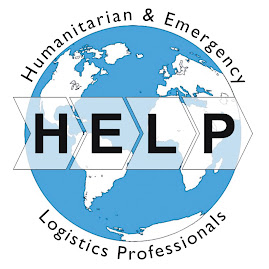 Damage & Emergency
Damage & Emergency Minimise risks through preparation
What will you do, when noxious liquids leak out your tanks? With GL you minimise risks to lives, properties and the environment. If it has come to a worst case, know why it happened - and you are better prepared next time.
Emergency Response Service
A cruise ship scrapes a reef. A fire breaks out in a storage room. The many different scenarios the Emergency Response Service (ERS) of Germanischer Lloyd has to handle are often hazardous for passengers, seamen and the environment. The emergency service for ships in trouble consists of a computer based contingency planning system available around-the-clock. In the case of an emergency, the service includes expert analysis of the damage and a detailed recommendation for the rescue procedure. The benefits for the shipping company are evident: An accident can often cost several hundred million euros. If an efficient crisis management system is in place, save considerable amounts of money can be saved and serious environmental damage avoided.
File Access Service
With the File Access Service (FAS), GL offers the permanent storage of plans within the framework of the Non-Tank Vessel Response Plan (NTVRP), required by the U.S. Coast Guard (USCG) for immediate access 24 hours per day. The NTVRP requires that operators of non-tank vessels should identify the shore location and 24-hour access procedures for shore-based calculation data, such as plans and drawings that might be useful in an incident. In case of an emergency, the availability of these plans shall help to evaluate damages and to compile a data model for further investigations.
SOPEP Approval
The "Shipboard Oil Pollution Emergency Plan (SOPEP)" is an information from the owner to the master of a particular vessel how to react in case of an oil spill. It describes the actions to be taken within various scenarios as well as communications to be made, listed in a format required by the MARPOL Convention Regulations. The plan is compulsory for all ships of 400 GRT and above. It has to be approved by the flag administration or a recognized organisation like GL.
SMPEP Approval
The "Shipboard Marine Pollution Emergency Plan (SMPEP)" is an information from the owner to the Master of a particular vessel how to react in case of a spill of noxious liquid substances (NLS) onboard. It tells how to act proper and immediately and whom to contact in such a case - all in a format required by the MARPOL Convention Regulations. The plan is compulsory for all ships of 150 GRT and above which are certified to carry noxious liquid substances in bulk (NLS). The IMO recommends furnishing a combined plan dealing with oil and NLS spills. The plan has to be approved by the flag administration or a Recognized Organisation. GL is authorized to approve the SMPEP.
Damage & Repair Management
Germanischer Lloyd co-ordinates all of hull and machinery related damages and the required repairs of the world wide GL classified fleet in service. GL issues technical reports and expert opinion reports for civil and legal affairs concerning shore plants and their sub-systems, power and heat systems and more. We accompany and mediate laboratory failure analysis of the material. Shipowners benefit from macroscopic documentation, our evaluation of damage characteristics, tests of material quality and micro investigations. We evaluate ship-side operational data and identify fracture appearances of wear mechanisms by scanning, electron microscopy and calculation for docking in loaded condition.
Source: Germanischer Lloyd (GL), who's a ship classification society and an international inspection, certification and technical consultancy company. Both business fields follow the same approach of technical competence, uncompromising quality and first-class services around the world.
.jpg)








1 comment:
nice post. thanks.
Post a Comment